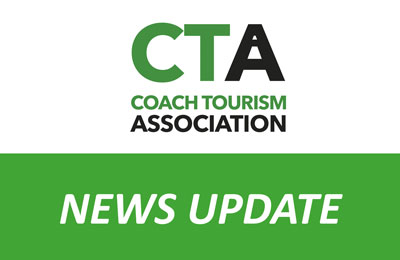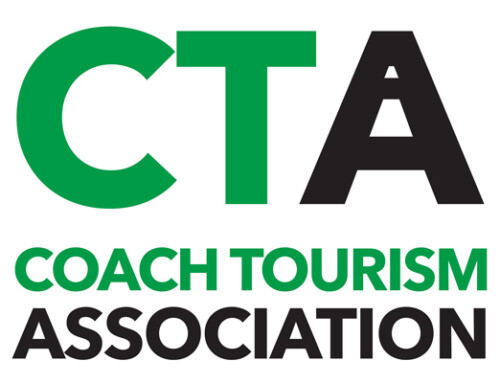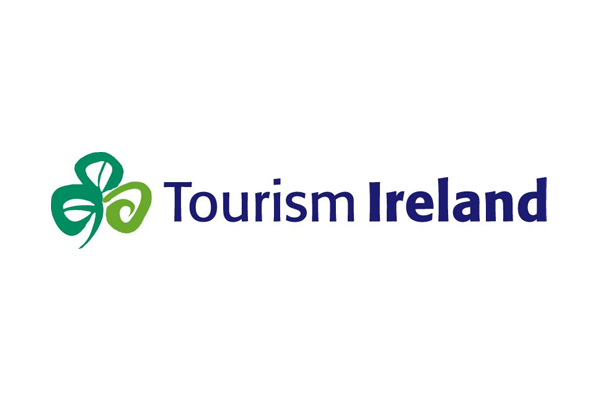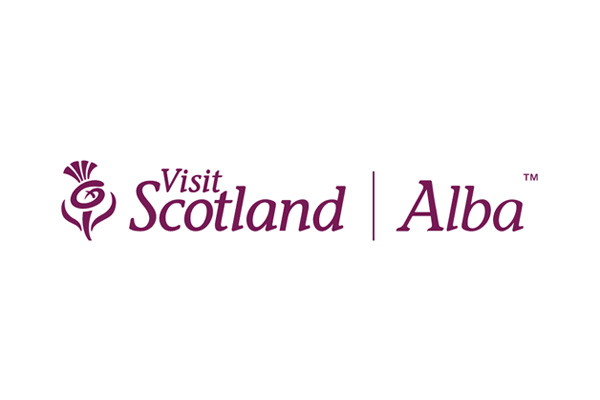COVID-19 Updates – week commencing 08/02/21
More updates of developments from the government and various links to interpretation and guidance.
Go to date:
9 February 2021 …
Tourism Alliance updates:
New Border Control Measures
The Government has announced new border control measures aimed at preventing new coronavirus variants entering the UK. In a statement to Parliament, the Health Secretary announced a three part programme to achieve this that comes into effect next Monday (15th February). The three components and associated details are as follows:
-
- Hotel quarantine for UK and Irish residents who have visited a red list country in the past 10 days, and home quarantine for all passengers from any other country
- From entry into the UK will be limited to a small number of ports of entry
- quarantine will be in an assigned hotel room for 10 days from the time of arrival
- quarantine will have to be booked and paid online prior to departure and will costing £1,750 for an individual travelling alone (this includes all costs including testing)
- full guidance will be published on Thursday when the booking site goes live
- A 3-test regime for all arrivals
- In addition to the pre-departure test, all international arrivals, whether under home quarantine or hotel quarantine, will be required by law to take further PCR tests on day 2 and day 8 of that quarantine.
- arrivals will have to book these tests through an online before they travel (as with the quarantine booking site, the site for booking tests goes live this Thursday)
- if either of these post-arrival tests comes back positive, they’ll have to quarantine for a further 10 days from the date of the test
- for people home quarantining, the existing Test to Release scheme can still be used from day 5, but this would be in addition to the mandatory 2 tests.
- The cost of the two tests is indicated by DoH as being £210
- Hotel quarantine for UK and Irish residents who have visited a red list country in the past 10 days, and home quarantine for all passengers from any other country
-
- Increased enforcement and fines
- a £1,000 penalty for any international arrival who fails to take a mandatory test
- a £2,000 penalty to any international arrival who fails to take the second mandatory test, as well as automatically extending their quarantine period to 14 days
- a £5,000 fixed penalty notice, rising to £10,000, for arrivals who fail to quarantine in a designated hotel
- a prison sentence of up to 10 years for anyone who lies on a passenger locator form to conceal that they’ve been in a red list country within 10 days of arrival
- Increased enforcement and fines
It’s also worth noting that in answering questions from MPs on the statement the Health Secretary did not give a timeframe for when these new restrictions might be lifted but said that this would be linked to the performance of the vaccines against new variants.
https://www.gov.uk/government/speeches/strengthening-our-health-protection-at-the-border
Quarantine in Scotland
The Scottish Transport Secretary, Michael Matheson, has announced that a similar quarantine regime will be implemented in Scotland next Monday. However, there is a major difference in that all people who arrive into Scotland will have to stay in a quarantine hotels – not just those from banned countries. You will see the obvious problem with this is that people who live in Scotland can easily avoid quarantining by flying into an English airport and then driving home. Apparently the Scottish Government is negotiating with Westminster as to how this can be resolved.
https://www.gov.scot/news/quarantine-hotels/
New VAT Deferral Scheme
Businesses that deferred VAT payments due between 20 March and 30 June 2020 and still have payments to make can join the new online VAT deferral payment scheme which will open between 23 February and 21 June 2021. The new scheme lets businesses:
-
- pay deferred VAT in equal instalments, interest free
- choose the number of instalments, from 2 to 11
To use the online service, businesses must:
-
- join the scheme directly rather than through an agent
- still have deferred VAT to pay
- be up to date with VAT returns
- join by 21 June 2021
- pay the first instalment upon joining
- pay instalments by Direct Debit
https://www.gov.uk/guidance/deferral-of-vat-payments-due-to-coronavirus-covid-19
10 February 2021 …
CPT operational updates:
DISINFECTING USING FOG. MIST OR OTHER SYSTEMS – HSE GUIDANCE
The Health & Safety Executive has released updated guidance for businesses using fog, mist or vapour systems to disinfect premises, vehicles and other areas during the pandemic
The guidance emphasises that disinfectants applied in this way may reach harmful levels during delivery
Any equipment used to deliver the disinfectant in this way must comply with the Supply of Machinery (Safety) Regulations
When machines are used in a workplace, the Control of Substances Hazardous to Health Regulations (COSHH) state that employers must ensure substances which are harmful to people’s health from their work activities are identified and assessed, and processes are put in place to eliminate or control risks
COSHH also requires employers to provide information, instruction and training for all their employees who use hazardous substances such as disinfectants in their work, including the appropriate precautions and actions employees must take to safeguard both themselves and others in the workplace
The updated guidance is available from the link below
12 February 2021 …
Tourism Alliance updates:
The main headline in the news this morning is that the UK economy contracted by 9.9% during 2020.
What is worth noting is another ONS report released today on the economic impact of coronavirus on different sectors of the UK economy. This report shows how the tourism and hospitality sectors have borne the brunt of this fall in GDP by contracting by the following percentages compared to February 2020.
- Air transport – 89.3%
- Travel Agents and Tour Operators – 85.9%
- Tourism Accommodation – 73.3%
- Creative Arts and Entertainment – 60.7%
- Food and Beverage Services – 48.0%
- Museums, Libraries Cultural Service – 38.9%
- Sport, Amusement and Recreational – 26.2%
- Water transport – 25.8%
In fact, these tourism-related sectors were eight of the ten most impacted sectors of the UK economy. The only others suffering a contraction of this magnitude were Rail Transport (-64%) and Domestic Staff (-50.8%). These figures highlight the need for the budget to focus on supporting and helping rebuild these sectors of the economy.
Tourism sectors are 8 of the 10 most impacted in the service sector – on the manufacturing side, aircraft repair (-49.2%), aircraft manufacture (-37.4) and Alcoholic drink manufacture (-33.9%) have also been heavily impacted.
So a better way of putting it is the tourism comprises 6 of the 10 worst impacted sectors of the UK economy
- Air transport – 89.3%
- Travel Agents and Tour Operators – 85.9%
- Tourism Accommodation – 73.3%
- Rail Transport – 64.0%
- Creative Arts and Entertainment – 60.7%
- Domestic Staff – 50.8%
- Aircraft Repair – 49.2%
- Food and Beverage Services – 48.0%
- Museums, Libraries Cultural Service – 38.9%
- Aircraft manufacture – 37.4%
- Alcohol Drink Manufacture – 33.9%
Here’s an update on the new quarantine regime that come into effect on 15 Feb.
People Arriving From a Non-Red List Country
This applies to everyone entering the England (with minor exceptions) from a destination outside the Common Travel Area that is not a Banned or Red List country
Before travelling, all people entering the country must:
-
- take a coronavirus (COVID-19) test and get a negative result during the 3 days before travel
- book and pay for a travel test package, which will include COVID-19 tests to be taken on or before Day 2 and on or after Day 8 of quarantine
- complete a passenger locator form with details of where they will quarantine and the travel test package booking reference number
People entering the country who have not been in a banned (red list) country within 10 days of arrival can quarantine:
-
- in their home
- with friends or family
- in temporary accommodation that is not a managed quarantine hotel
The place of quarantine must be the one they list on the passenger locator form and the person must stay there for the entire 10 days. People must travel directly from the port of entry to the place of quarantine, and only using public transport or stay somewhere along the way if absolutely necessary.
During the 10 day quarantine period:
-
- no visitors are allowed outside medical and other emergency assistance
- no leaving the property is allowed, not even for shopping, exercise or walking a dog
Other people living in the property do not need to quarantine, unless:
-
- they also travelled overseas
- someone living in the property develops coronavirus symptoms
The 10 day quarantine can be ended after 5 days if a person:
-
- takes the test for variant surveillance on or before Day 2
- takes a test on the 5th full day of quarantine under the “Test to Release” scheme and the result is negative
- takes the test for variant surveillance on or after Day 8
People traveling to the UK in the next 7 days and facing a set of circumstances that are not covered by the guidance are asked to contact the NHS using the following address dhsctesttrace.customerfeedbackteam@nhs.net
https://www.gov.uk/guidance/how-to-quarantine-when-you-arrive-in-england
How to Test at Home
To tie-in with the need to undertake home testing if returning from overseas, the Government has updated and expanding the guidance for the public on how to conduct testing at home. This includes a step by step guidance, a guidance on how to test children and a guide for use in Wales.
https://www.gov.uk/government/publications/testing-for-coronavirus-at-home
People Arriving from Banned or Red List Countries
People arriving into the UK who have been in, or passed through, a banned or red list country within 10 days of arrival are only allowed to arrive into England at:
-
- Heathrow Airport
- Gatwick Airport
- London City Airport
- Birmingham Airport
- Farnborough Airfield
(others will be added to this list)
People with a pre-existing booking to a different port of entry on or after the 15 February have to change it to one of the ports of entry specified above.
Before travelling, all people entering England from a Red List country must:
-
- take a coronavirus (COVID-19) test and get a negative result during the 3 days before travel
- book a managed quarantine hotel package which includes the hotel accommodation, quarantine transport and a travel test package for COVID-19 tests on day 2 and day 8 of quarantine
- complete a passenger locator form with details of where they will quarantine with the quarantine package booking reference number
The cost of a package is
-
- Rate for 1 adult in 1 room for 10 days (11 nights) £1750
- Additional rate for 1 adult (or child over 12) £650
- Additional rate for a child aged 5–12 £325
People staying in a Quarantine Hotel are not allowed visitors are can only leave their room in very limited circumstances including:
-
- to travel directly to leave the Common Travel Area
- to fulfil a legal obligation including attending court or satisfying bail conditions or to participate in legal proceedings
- to exercise but only with special permission from hotel staff or security. This is not guaranteed
- in exceptional circumstances
People staying in a quarantine hotel will be tested on Day 2 and Day 8
- A person with a positive test result on Day 2, and anyone they travelled with, must quarantine until day 12
- A person with a positive test result on Day 8, and anyone they travelled with, must quarantine until day 18
- There is no option of undertaking a “Test to Release” test on Day 5 to shorten a stay
https://www.gov.uk/guidance/booking-and-staying-in-a-quarantine-hotel-when-you-arrive-in-england
Red List Countries
Here is a link to the current Red List countries. Talking to DCMS officials earlier, they envisaged the list would be review approx. every two weeks but that changes to countries on the list will be driven by the spread of variants that are of concern rather than specific dates.
There is also more detail coming on what constitutes arriving from a red list country but working assumption is that it includes passenger who remain airside when transiting through a red list country. This includes situations where they remain on the plane while other passengers board.
Restaurants, Pubs and Cafes Guidance Updated
The primary guidance for restaurants, pubs and cafes has been updated to include a section on Workplace testing which states that it’s important to continue to follow the working safely measures, even if employees have:
-
- received a recent negative test result
- had the vaccine (either 1 or 2 doses)
Also that employers can order rapid lateral flow tests, to test employees with no coronavirus symptoms if:
-
- the business is registered in England
- the business employs 50 people or more
- employees cannot work from home
There is also a requirement that the businesses have to be operating at the moment so many businesses in these sectors will probably have to wait until they reopen in order to be able to order tests
Test And Trace Payment Privacy Notice
The Government has updated the Private Notice to inform people that local authorities can use Test and Trace Payment Support data for wider benefit accuracy checks. Local authorities will also validate bank account details before making payments to ensure they align with the applicant, for anti-fraud purposes.
https://www.gov.uk/government/publications/test-and-trace-support-payment-scheme-privacy-notice
Innovate UK EDGE
BEIS has launched Innovate UK EDGE as part of the UK innovation agency’s investment in the innovative businesses that drive economic growth. It is an addition to Innovate UK project funding and will provide free tailored support and advice to help small businesses (up to 250 employees) innovate and grow internationally. This support includes:
-
- finding the right partners for research, development and innovation
- finding new markets for your products
- accessing funding and finance
- assessing and planning your internal resources
While the video and support material on the website is very much focused on high tech research and development, this support is actually available to businesses from any sector and might be of interest to some of your member who have a new product or service that they would like to develop.
https://www.gov.uk/business-finance-support/innovate-uk-edge
Lateral Flow Results in 30mins
The Government has announced that people undertaking lateral flow tests should now get their results within 30mins rather than the previous 2 hour waiting period. This reduction in waiting time may increase the usefulness of these tests for enabling the freer flow of tourism.
https://www.gov.uk/guidance/coronavirus-covid-19-getting-tested
Covid-19 Community Testing/Postcode checker
The Department for Health and Social Care have announced that over 230 local authorities in England are now offering rapid Covid-19 testing. They have also launched a new postcode checker to help people who need to leave home for work find out if rapid Covid-19 testing is offered by their local authority or near their place of work.
https://www.gov.uk/find-covid-19-lateral-flow-test-site










